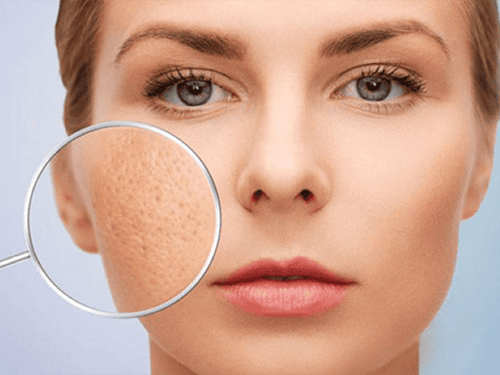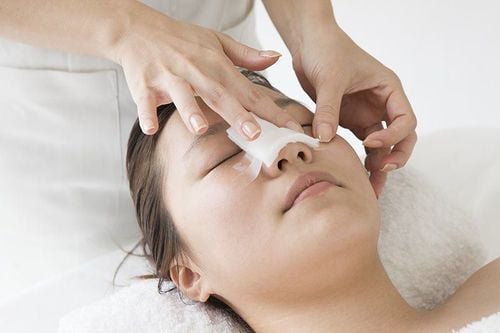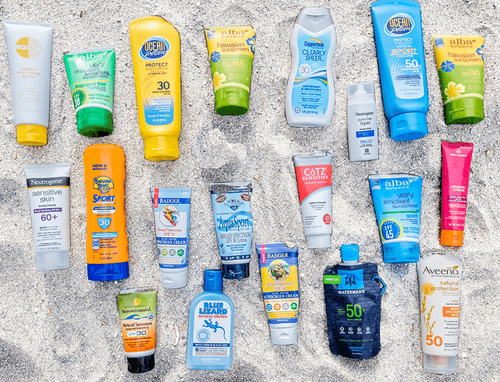This is an automatically translated article.
The sun's ultraviolet rays can have a big impact on skin health as well as appearance. Although most people know that sunscreen is an effective tool to protect their skin, not everyone knows how to choose the right sunscreen, especially choosing a sunscreen for the face. In fact, this skin area is inherently more sensitive and needs more special care, so it is necessary to choose a different sunscreen than the one used for the body.1. Overview of how to choose the right sunscreen
Choose a sunscreen with “broad spectrum” protection Sunscreen with this label will provide protection against both UVA and UVB rays. All sunscreen products inherently protect against UVB rays, which are the main cause of sunburn and skin cancer. At the same time, UVA rays also contribute to skin cancer and premature aging. Only sunscreen products that pass certain testing steps can be labeled "broad spectrum". Products without broad-spectrum sun protection only provide protection against sunburn, but not against skin cancer or skin aging.Make sure the sunscreen has a sun protection factor of SPF 30 or higher. SPF is the level of protection a sunscreen provides against UVB rays. A higher SPF means more protection for the user. However, the higher the index, the smaller the difference. SPF 15 sunscreen filters about 93% of UVB rays, while SPF 30 sunscreen filters about 97% to SPF 50 sunscreen about 98% and SPF 100 about 99%. Accordingly, the truth is that no sunscreen protects the skin completely.
Choose one with “waterproof” properties This does not mean “waterproof” as no sunscreen is waterproof or “sweatproof”. Meanwhile, this concept is understood that this sunscreen can be used when the user participates in water activities such as bathing, swimming or sweating. However, for best results, reapply sunscreen at least every 2 hours and even more often if participating in activities that come in contact with water. At the same time, sunscreen often wears off as the body dries, so it will need to be reapplied.
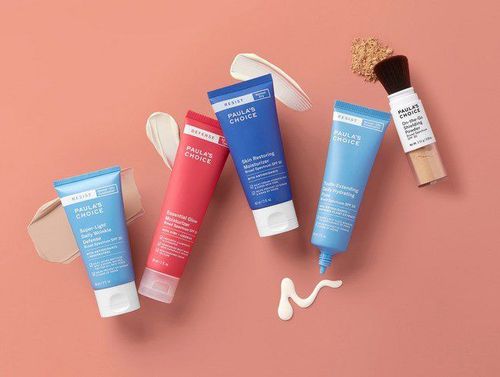
Bạn nên lưu ý các chỉ số cũng như độ chống nước khi chọn kem chống nắng
2. What makes sunscreen for face different?
Like facial moisturizers, facial sunscreen products tend to be formulated differently than body lotions. Unlike the rest of the body, facial skin is exposed to environmental factors on a daily basis. This is also where the most delicate areas of skin are concentrated - like the skin under the eyes. Therefore, the best modern facial sunscreens are formulated to a high standard, combining the same functions as skin care products. This will help create a comfortable feeling on the face, with a lighter texture and easier absorption than sunscreens used on other areas of the body.As such, facial sunscreens have the following differences from body sunscreens:
Lighter texture Non-greasy Non-comedogenic (designed to not clog pores) Effective Highly effective - with high SPF and broad spectrum protection Fragrance free so it won't interfere with other skin care products Specially formulated for different skin types – dry, oily or combination skin Absorbs quickly, suitable for use under makeup.
3. How to choose the right sunscreen for your face
If you have ever chosen to buy sunscreen, users sometimes face many difficulties when faced with a variety of products. Besides, although it's not really dangerous to apply a full body sunscreen on the face, applying sunscreen specifically for this sensitive skin area will feel more comfortable; At the same time, the skin is also more optimally cared for.Here are some guidelines for choosing the right sunscreen for your face:
Broad spectrum Because a sunscreen's SPF only describes the sun's ability to block harmful UVB rays while sunscreens only A high SPF number doesn't mean it will block the sun's UVA rays, so choose a sunscreen that's marked "broad spectrum" for full sun protection.
Especially when used on sensitive skin on the face, sunscreen must work to block the rays that cause premature aging.
Non-allergenic Compared to the skin on the body, the facial skin is especially prone to acne, especially in people with oily acne prone skin. These breakouts can be caused by clogged pores on the face, which promotes the accumulation of bacteria that leads to the appearance of acne.
Sunscreens marked as “non-comedogenic” have been formulated using special ingredients that will not clog pores.
Oil-free (for those with oily skin) Similar to acne-causing products, oil-based sunscreens can clog pores and contribute to acne development, especially when mixed with natural oils on the skin.
Also, many women use facial sunscreen as a base under their makeup. Accordingly, using an oil-based facial sunscreen along with makeup can make the skin feel heavy. Therefore, it is necessary to choose a sunscreen for oily skin if you have this skin condition.
Moisturizing (for those with dry skin) Choosing to use a moisturizing sunscreen may suffice for daytime skin care as a “two-in-one” product for people with fair skin. dried.
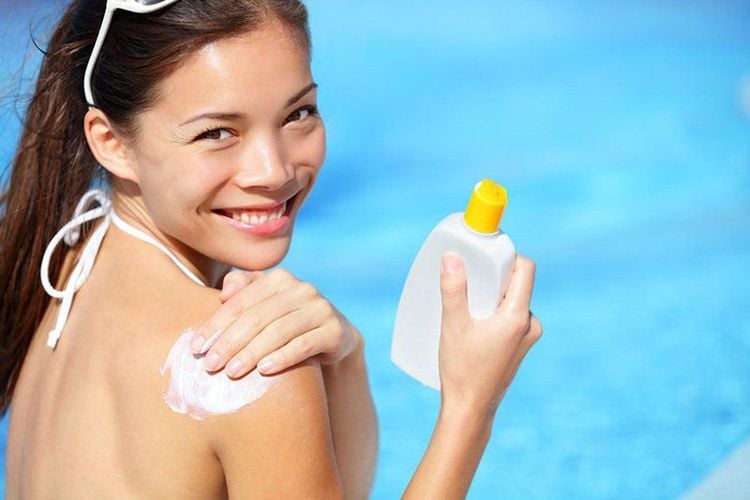
Bạn nên chọn kem chống nắng phù hợp với loại da của mình
Therefore, it is important for users to test a sunscreen before purchasing as authorized by a retailer or to look for a sunscreen that is specifically labeled as “fragrance free”.
4. Other ways to protect your skin from the sun
In addition to choosing the right sunscreen and using it correctly, smart users also need to follow these steps to help protect their skin from the harmful effects of the sun, minimizing the risk of sunburn. May cause premature aging and skin cancer:Cover up for skin. When you need to be out in the sun, wear clothing and a wide-brimmed hat to protect your skin as much as possible. Also, don't forget to protect your eyes with sunglasses that block at least 99% of UV rays.
Find shade. Limit direct sun exposure, especially between 10 a.m. and 4 p.m., the time when UV rays are strongest during the day.
Limit the use of tanning beds and sunlamps. These forms always have potential risks that can cause skin damage from microscopic to severe over a long period of time. This becomes a contributing factor to skin cancer.
In summary, finding the right sunscreen in general or choosing a sunscreen for the face in particular is not a challenge at all if equipped with certain knowledge, especially when it comes to the characteristics of the skin. about my own skin. In fact, there are many different options on the market for the right sunscreen, based on everything from skin type to use case. Therefore, each person should be a smart consumer, combined with ways to cover the skin, to maintain bright and youthful skin from the effects of the sun.
Please dial HOTLINE for more information or register for an appointment HERE. Download MyVinmec app to make appointments faster and to manage your bookings easily.
References: cancer.org, laroche-posay.co.uk, qsun.co, thehealthy.com



